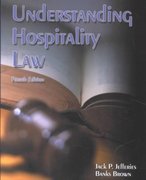Question
Case 6: Star Boy Paul Sutton had been working for the student life department of Southern University (SU) for almost two years. He started as
Case 6: Star Boy
Paul Sutton had been working for the student life department of Southern University (SU) for almost two years. He started as a student advisor in general advising, working with freshmen and transfer students. He worked his way up to a Graduate Programme Coordinator position. During the two years at SU, he was promoted three times and received a nearly 50% raise in salary. His promotions and raises were unprecedented in the typically conservative university system.
Paul's boss, however, knew a top performer when she saw one and wanted to keep encouraging him for his work performance and creativity. Paul came to SU with experience from both private industry and the public sector. After getting aB.Sc. in International Business and Marketing with honours, he had worked for a major high-technology company in strategic planning and corporate public relations for two years. He was consistently ranked as a high performer and was rated as a high-potential employee.
His three bosses noted his strongest feature as "being an exceptionally quick learner with high energy." Paul had also worked for the city government in community relations. He left that job after six months in spite of high ratings and the promise of a good raise. His boss at the city government offered him new responsibilities and new positions, to no avail. Paul came to SU looking for a challenging position. He wanted to do something he had never done before, and universities looked like a place where he could do his own thing and learn something new.
The best part of his job was his boss who trusted him and left him alone. He also love working with students and had developed an exceptional reputation as a highly effective advisor and recruiter. His regular job duties were simple. They included advising prospective graduate students and handing them off to specific program advisors once they selected an area, as well as assisting the graduate dean with recruitment efforts.
In addition, Paul was involved in a large number of activities ranging from SU's development campaign to the design of databases for undergraduate admission, to cooperating with the public relations office on the design of brochures. Paul's students and people outside his office loved him. His boss could not stop singing his praises. She sincerely believed that Paul was invaluable to her office and often worried about his being bored.
Just like Paul's previous boss in the city, she was willing to do anything to keep Paul at SU. Paul's immediate co-workers, who included several other advisors and the clerical staff working in admissions and registration, were less enthusiastic. Hard-driving, unforgiving, perfectionist, and unreasonable were the adjectives they used to describe Paul. Two of the department's secretaries had threatened to quit because of Paul's work demands.
The situation was tense enough that they were reassigned. Paul's fast promotions and raises had also created considerable resentment among his peers. The dislike was mutual. Paul found most of his immediate co-workers to be only mildly competent, generally lazy, and lacking in any initiative or serious dedication. He thought they just did their jobs, but not much more. In spite of Paul's fast promotions and other successes, he was not happy.
The job at SU was beginning to look a lot like the one at the high-tech firm. The first year was great, but things were just not very interesting from then on. He knew he was valued and was contributing, but he felt underutilized. He knew that he was close to reaching the organization's limit on promotion and raises. There simply was not enough room to move up in the system. To keep himself busy, Paul had started his own small public relations business on the side, working with small day-care centres and private schools.
Although the business was very small, he really enjoyed the time he spent on it. He felt challenged and often stayed up late to work on his own business. He had been thinking about simply quitting SU. He had enough money saved to carry himself for a while but did not want to let his boss down and felt guilty about leaving his students.
Questions
1. Summarize the case (10 marks)
2. Discuss three organizational behaviour concepts covered in this module that are applicable to the case. (20 marks)
3. Discuss the role of intellectual ability in Paul's job satisfaction and career decisions at SU (15 marks)
4. Analyze the impact of Paul's personality traits on his relationships with his co-workers at SU. What are the positive and negative effects? (15 marks)
5. Discuss how the biographical characteristics of Paul Sutton have contributed to his rapid career progression at SU? (15 marks)
Step by Step Solution
There are 3 Steps involved in it
Step: 1

Get Instant Access to Expert-Tailored Solutions
See step-by-step solutions with expert insights and AI powered tools for academic success
Step: 2

Step: 3

Ace Your Homework with AI
Get the answers you need in no time with our AI-driven, step-by-step assistance
Get Started


